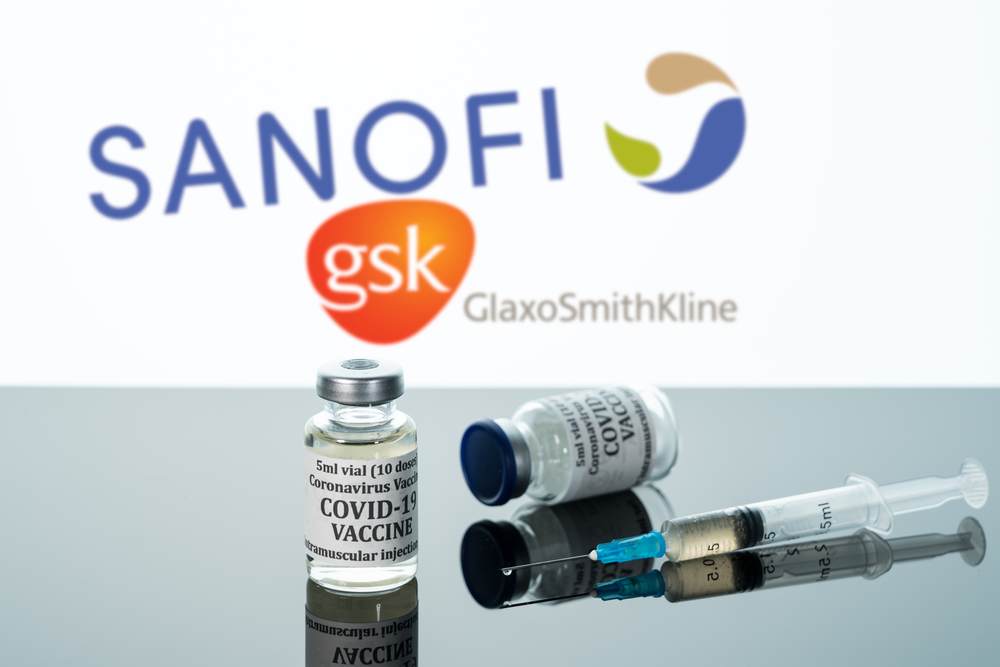
Sanofi and GlaxoSmithKline (GSK) plan to seek regulatory authorisation for their Covid-19 vaccine after reporting positive results from a late-stage clinical trial.
Two doses of the vaccine provide complete protection against severe disease and hospitalisation, the French and British drugmakers said on Wednesday. The jab also demonstrated 75% efficacy against moderate-to-severe Covid-19 in Phase III studies, and was found to be almost 58% effective against all symptomatic disease.
The companies also reported that in participants who had received two doses of an already approved Covid-19 vaccine, a booster shot of the Sanofi-GSK jab induced “a significant increase in neutralising antibodies of 18- to 30-fold”.
Efficacy results for the Sanofi-GSK vaccine are less impressive than those of some of its competitors, though this could be due in part to the emergence of several highly transmissible SARS-CoV-2 variants over the course of the pandemic. Enrolment for Phase III studies of the jab commenced last May, far later than many other candidates’ late-stage trials, meaning participants were more likely to have been infected with variants of the virus that could have impacted the effectiveness of the shot.
Sanofi’s executive vice president for vaccines Thomas Triomphe commented: “No other global Phase III efficacy study has been undertaken during this period with so many variants of concern, including Omicron, and these efficacy data are similar to the recent clinical data from authorised vaccines.”
Vaccine rivals
The jointly developed vaccine candidate is protein-based, relying on well established vaccine technology that means it can be produced easily and stored in refrigerators. While the Covid-19 market is dominated by Pfizer-BioNTech and Moderna’s hugely successful mRNA-based vaccines, these products require freezer storage, making supply to hotter regions like Africa and Latin America more complicated. Should Sanofi and GSK’s jab receive approval, it could have the edge over rivals when it comes to delivering doses to parts of the world where cold chain requirements are impractical and vaccine supplies are limited.
How well do you really know your competitors?
Access the most comprehensive Company Profiles on the market, powered by GlobalData. Save hours of research. Gain competitive edge.

Thank you!
Your download email will arrive shortly
Not ready to buy yet? Download a free sample
We are confident about the unique quality of our Company Profiles. However, we want you to make the most beneficial decision for your business, so we offer a free sample that you can download by submitting the below form
By GlobalDataThe vaccine is facing competition from another protein-based Covid-19 vaccine, though. Novavax’s candidate Nuvaxovid has been authorised by a string of regulators in recent months, including the UK, the EU, India and Australia. The vaccine was also added to the World Health Organization’s list of emergency use Covid-19 vaccines last year.
Sanofi and GSK are now in discussions with regulatory bodies, including the US Food and Drug Administration and the European Medicines Agency, about authorising the vaccine for both primary vaccination and booster doses.
Delayed development
The positive Phase III results come after a series of road bumps and delays for the Sanofi-GSK jab. In 2020, the drugmakers announced that the vaccine had failed to induce a sufficient immune response in older adults in Phase I/II clinical studies. The lack of efficacy in those aged 50 and older was put down to “insufficient concentration of the antigen”, and the vaccine programme was delayed as the companies worked to optimise the antigen concentration of the jab. Phase II studies assessing the vaccine’s new refined formulation commenced in February 2021, in which the jab later demonstrated good efficacy across all age groups.
Sanofi and GSK’s Covid-19 vaccine efforts suffered a further setback last year, however, when the release of trial data for their booster shot – and its potential launch – was stalled because researchers could not find enough uninfected people to test it on.
Despite these obstacles, the companies have managed to secure several supply deals. The advance purchase agreements made so far include the UK, which has bought up 60 million doses, and the EU and Canada, who have secured up to 300 million and 72 million doses, respectively.



